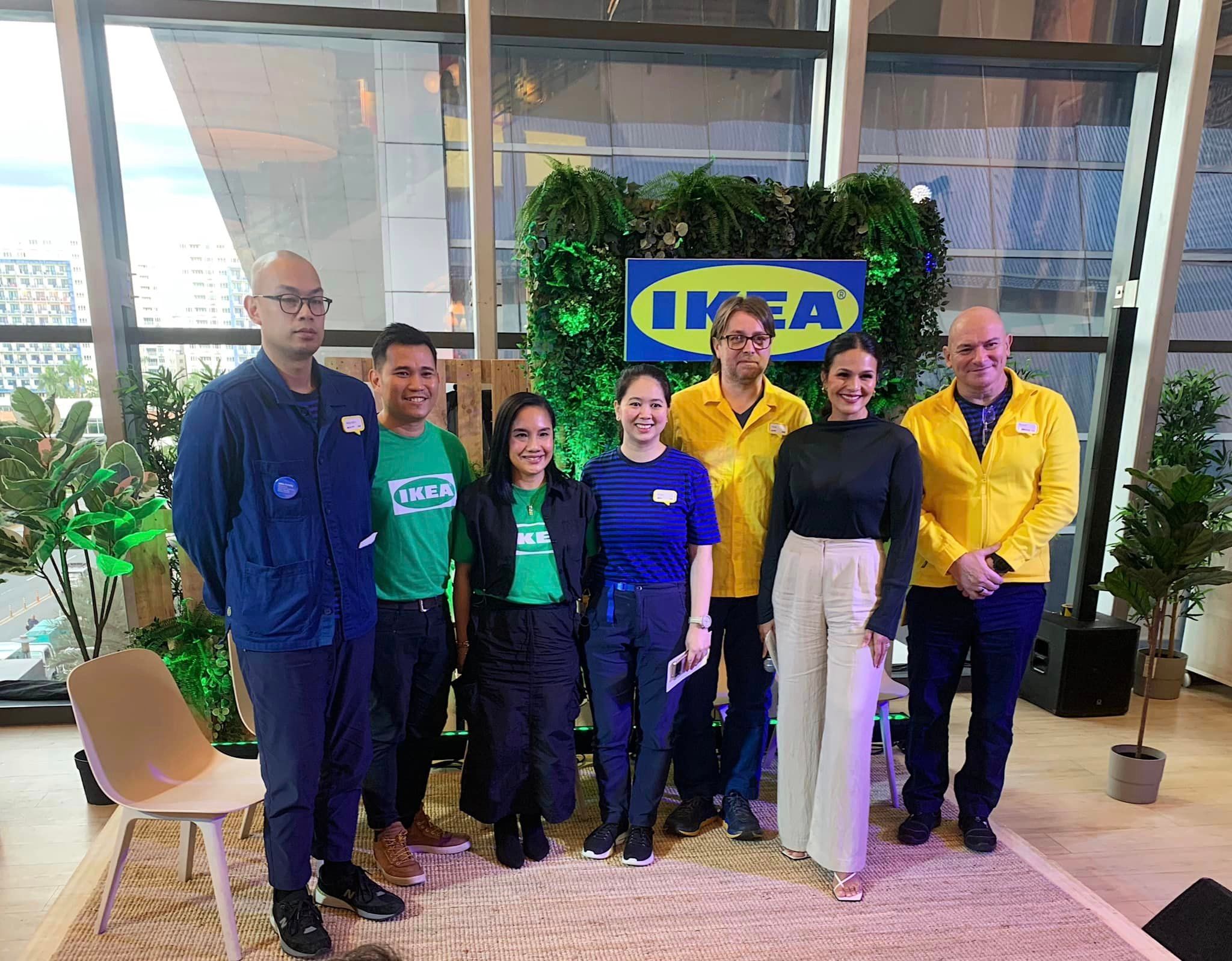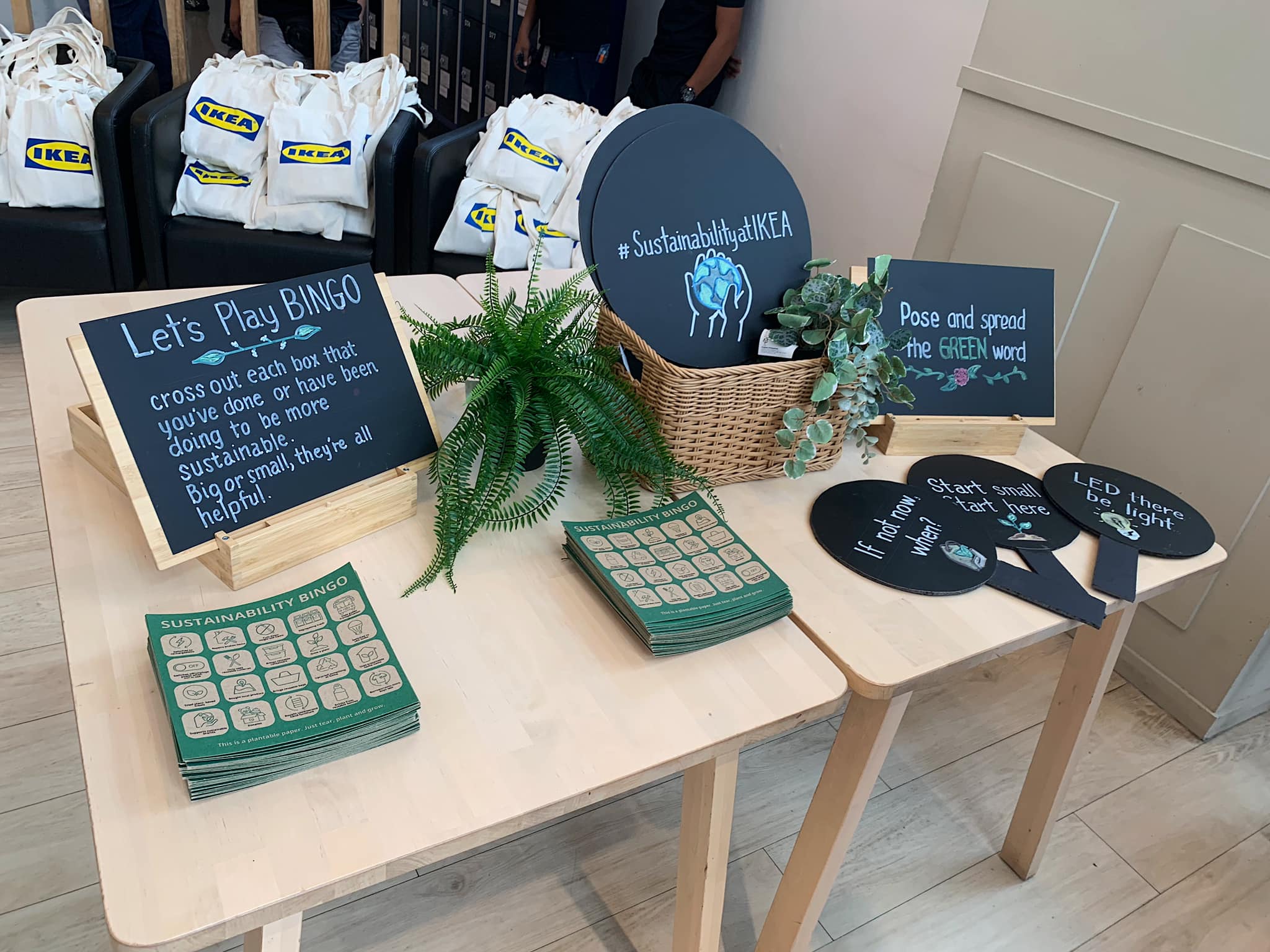The imminent peril facing our environment is hardly breaking news. Exacerbated by human activity, some environmental consequences are glaringly evident in today’s scorching heat, melting glaciers, and denuded forests, placing our only home at stake.
It’s also increasingly undeniable that, in a consumerist society, businesses should play a major role in helping the environment reclaim its natural balance. For IKEA Philippines, caring for the planet is a serious matter, which is reflected in the company’s sustainability report.

On being eco-friendly in 2023
The Swedish retail chain published its sustainability report for September 2022 to August 2023, which focused on “inspiring healthy and sustainable living, being more circular and climate-positive, and creating a fair and inclusive culture.”
By 2030, IKEA aims to sell home furnishing products with 100 percent recycled or renewable materials. In its report, it said it has already reached 73 percent of this goal.
Apart from product sustainability, the company also strives to serve 50 percent of main meals at the Swedish restaurant plant-based. Currently, it stated it has achieved 7.7 percent of this target.
For community impact, the retail chain has partnered with Rags2Riches (R2R), an eco-fashion house, to upcycle discarded fabric. The report mentioned R2R had upcycled 4,000 kilograms of scrap fabric from IKEA, which helped promote a circular economy.

Sustainability as bestseller
One of the company’s top-selling sustainable products is the blue Frakta shopping bag, which only costs ₱30.
A total of 660,000 Frakta bags were sold from September 2022 to August 2023 in the Philippines. This figure marks not just the company’s success, but also consumers who are now bringing their own bags when shopping.
"It is a reusable and very durable bag for any need. The data is a testament that this bag is simply a bag for everybody, and that sustainability should be attainable by everyone," said IKEA PH Marketing and Public Relations Manager Patrick Marcelo.
Challenges in going green
The company faced several hurdles in achieving sustainability, and one of which is finding partners for eco-friendly transportation.
“For instance, when we were planning to start our operation with electronic vehicle delivery, not a lot of logistics companies were open to invest in sustainable transportation,” said Marcelo. “Fortunately, we found Mober who now handles our customer deliveries using electric vehicles.”
Another challenge for the retail chain was bridging sustainability and affordability, with Marcelo explaining, “At IKEA, we only use Forest Stewardship Council-certified papers, but in the Philippines, the demand for this paper is still low, hence the high price. It took us years before we could find an affordable provider of our FSC-certified paper.”
All in all, IKEA helps prove that businesses can be transparent and remain committed to their sustainability goals. Especially today when going green has become a lot “cooler” than before, consumers would want to buy products and eat meals that don’t harm the Earth.
As companies adapt to sustainability, it’s our duty as consumers to be more mindful when purchasing products; after all, wouldn’t we want that an item we bought is a gift not just for us, but also for the planet?